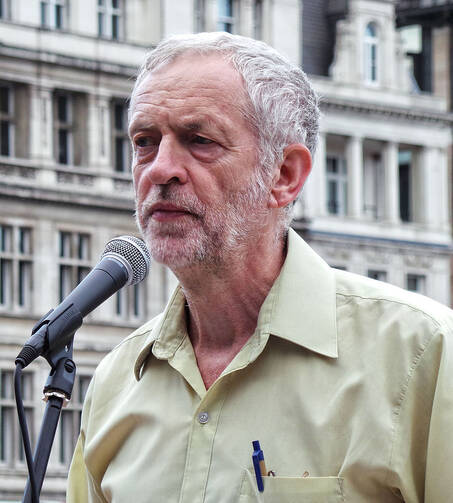The political left has long seemed an accident waiting to happen. Factionalism and splits, entryism and intrigue; the left’s got it all. For over a century, the chant has gone up—“The workers, united, will never be divided”; but nobody has needed to divide the parties of the left because they have proved perfectly capable of doing it by themselves. As early as 1904, a fractious split emerged in the quarrelsome Russian Social-Democratic Labour Party between Lenin’s Bolsheviks and Martov’s Mensheviks. Rumbling division is as characteristic of the British Labour Party as of anywhere else, possible more so. The center and the right have it too, but they hide it better. With Labour, it’s visible and endemic.
It’s happened again, as Labour tries to drag itself back from electoral disaster at the UK Parliamentary General Election of May 2015. Then, the Tories under Cameron won enough seats, in our first-past-the-post system, to go Buckingham Palace to collect from the monarch the keys to Number 10 Downing Street and form the first Conservative Party government since 1992. Labour, under Ed Miliband, suffered casualties as did the smaller Liberal Democrats who, having spent the previous five years as junior partners in a Tory-led coalition, lost almost all of their seats and most voters’ respect. Numerically, the Labour collapse was not so calamitous except in Scotland, where they were wiped out by the resurgent Scottish National Party, whose resilience after losing 2014’s independence referendum defied all predictions other than their own. Miliband’s Labour managed to increase their overall popular vote slightly, more than the Tory vote share rose, but suffered a net loss of parliamentary seats, winning 30.4 percent and 232 seats. This was Labour’s fewest seats since 1987. Miliband lost. He had to go.
Whereas the Liberal Democrats, whose Nick Clegg had also resigned after being Deputy Prime Minister to Cameron in the coalition, contrived to elect his successor without anyone noticing, Labour has done it all out in the open. Splits and divisions were there for all to see as the lengthy leadership battle raged. The biggest talking point thus far (a winner will be formally declared on September 12) is the remarkable popularity of Jeremy Corbyn a veteran of the party’s left. His brand of outwardly hard socialist policies is preferable, according to some, to any chance of ever again winning power.
Corbyn’s three leadership competitors, from Labour’s center and right, cite comparisons with former leader Michael Foot in 1983, whose cerebral and passionate advocacy of a left-leaning platform led to electoral catastrophe for Labour. MPs Andy Burnham, Yvette Cooper and Liz Kendall have all come from the center-right, “Blairite” wing of the party. Former leader and Prime Minister Tony Blair’s reforms of the 1990s caused wounds that have opened again. Yet Corbyn, who initially struggled to get enough signatures for nomination, surged ahead, remaining popular with the rank-and-file throughout the contest. At various times in recent weeks, his opponents have uneasily held hands attempting to persuade the party membership away from Corbyn but he has continued to attract support, apparently mainly from the unions and the young. Specific policy lines have featured in the campaign but have been secondary to the question of whether Labour can ever return to Downing Street or will forever henceforth be a powerless party of protest.
To all except the most ardent Labour supporters, for whom this has been embarrassing, there have been allegations that non-party members, including even, whisper it, some Tories, might have taken out party memberships in order to get a vote; this would be cast for Corbyn, ensuring Labour’s non-electability. Corbyn’s opponents demanded extra checks for infiltration; Corbyn denied the possibility. Right on cue, the hashtag #LabourPurge trended on Twitter.
The leadership battle has reflected the continuing anti-austerity feeling in many countries, including here. Greece’s travails have, in recent weeks, been the most prominent as Greek PM Tsipras called a general election, precipitating an immediate split in his Syriza party. Those who repudiate that country’s debtor-imposed austerity broke away. Although Labour here has always managed, just about, to hold its unity, there must now be some concern that the Corbyn-inspired resurgent Left might similarly, and permanently, split the party.
David Stewart, S.J., is America's London correspondent.








